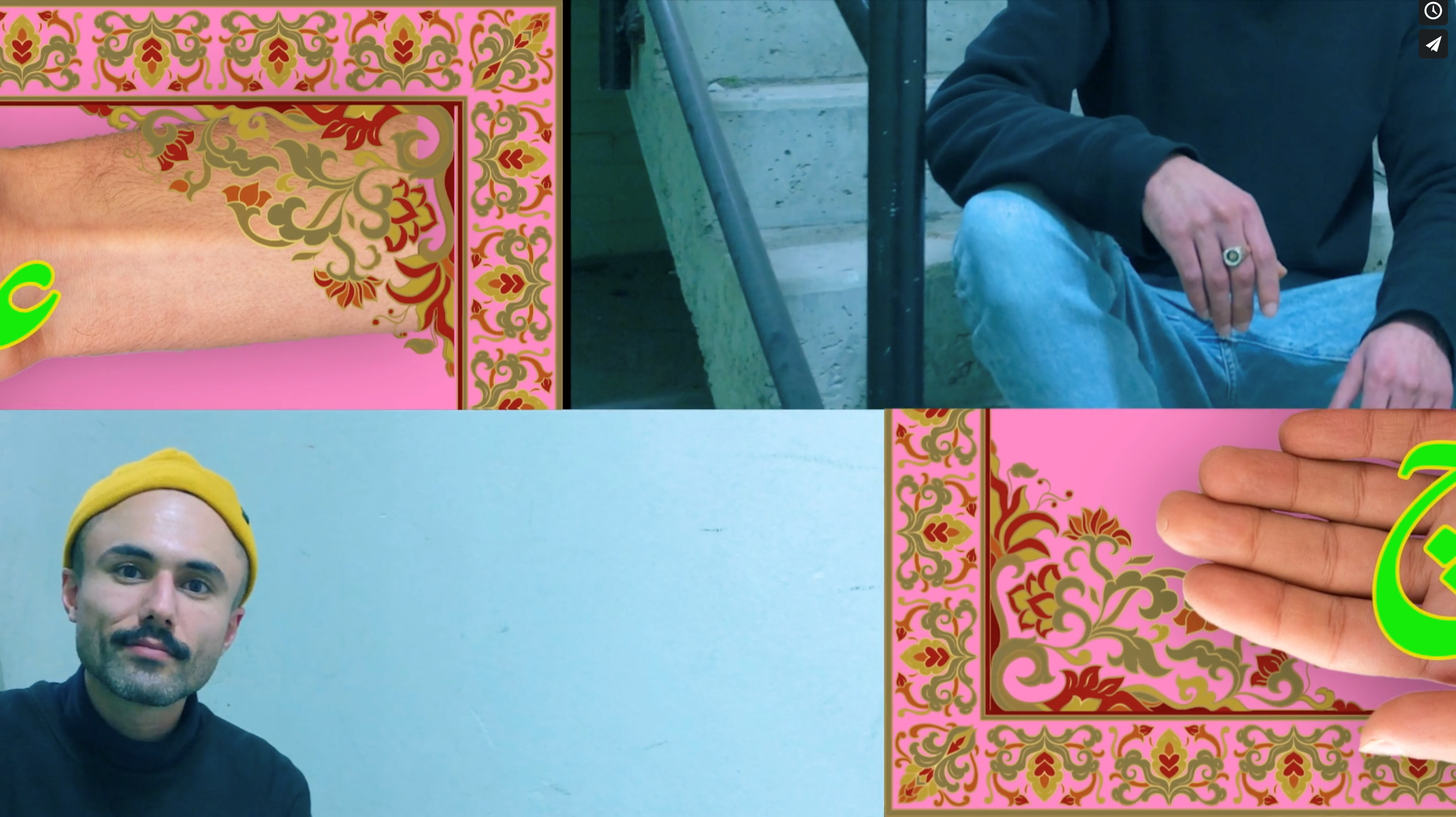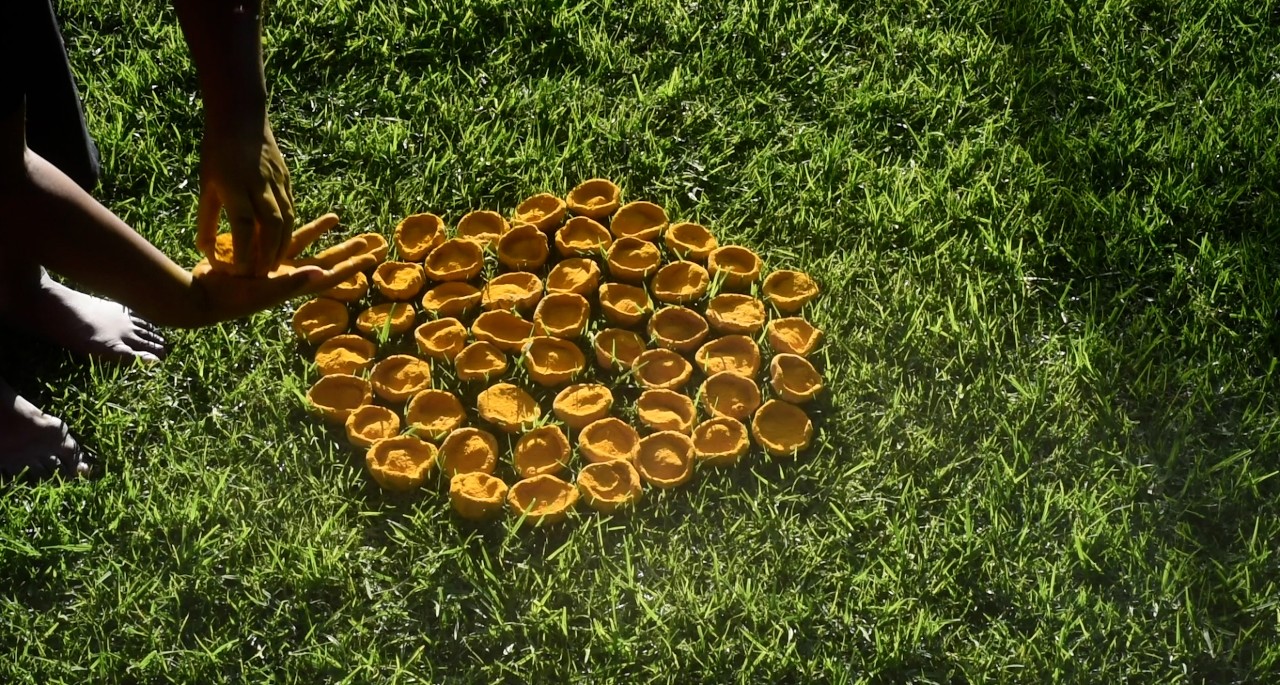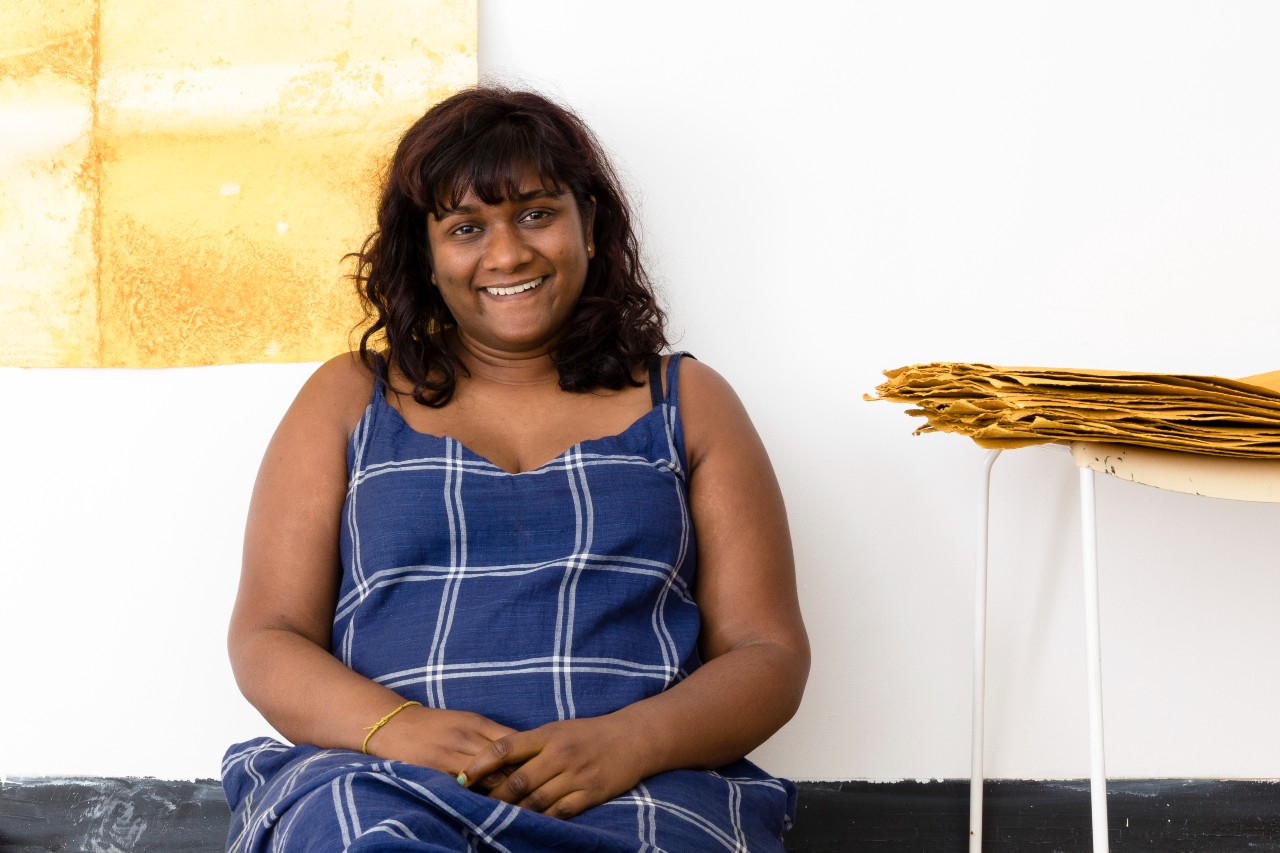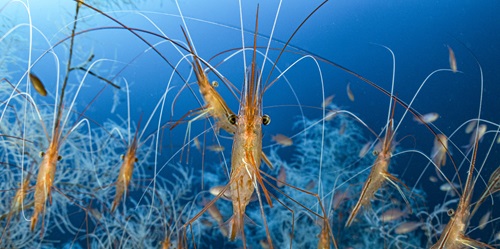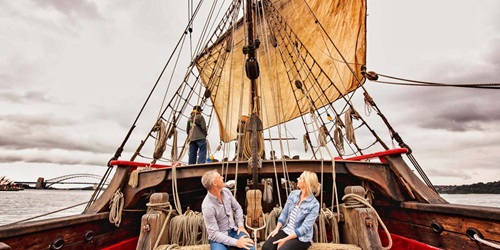Curated by Blacktown Arts
Featured films include:
- Dreamtime Story, 2021 Uncle Wes Marne (2:29)
- Our Country, 2019 Agal Dance Company (6:16)
- Baaro Part 1, 2020 Shivanjani Lal (7:00)
- Break the Cinnamon Branch, 2020, Jagath Dheerasekara (3:39)
- The Princess and the Bird, Meet+Eat, 2014, Curiousworks (14:44)
- Jawad Cooking Lamb Shorba, 2014 PYT Fairfield (4:47)
- Ashat Edich, 2021, Mustafa al Mahdi (4:38)
- Videos for the Grandchildren I'll Never Have, 2019, Jason Phu (12:06)
- Under the table I learnt how to feed you, 2019/20, Justine Youssef (6:00)
- Lullaby, 2021, Darug Custodian Aboriginal Corporation (3:36)
Dreamtime Story, 2021
Uncle Wes Marne tells a dreamtime story.
Uncle Wes Marne
Uncle Wes Marne is Bigambul man and community elder who has lived in Mount Druitt for the past 45 years. He is a storyteller, poet and custodian of his grandfather’s Creation and Dreamtime stories. Uncle Wes is a published author, and has toured his work, Fire Bucket at Sydney Festival (2016), Yirramboi First Nations Arts Festival in Melbourne (2017) and Way Out West Children’s Festival at Casula Powerhouse Arts Centre (2017).
Uncle Wes comes from a long line of storytellers and has been working with children, primary and high schools, universities, gaols, social housing and justice to share his love of culture and stories throughout all the community.
Our Country, 2019
Holding our mudras into the sky, as we stand poised in our Bharathanatyam stance on blessed Gadigal land. Draped in vibrant fabric, enveloped by the vast cityscape of Sydney. This is who we are. Wherever we go, we dance.
Presented by Agal Dance Company, in collaboration with Blacktown City Council and Dioscuri Photography.
Dancers: Chidambaram R. Suresh, Shobana Suresh, T. Shriraam, Nikki Sekar & Vishni Ravindran
Artistic Director: Vishnu Arunasalam
Director of Photography: Dioscuri Photography
Makeup Artist: Sahana Balachandar
Jewellery: Valampuri
Poetry: Srisha Sritharan
Jathi Composition: Chidambaram R. Suresh
Technical Support: Gokulan Gopal & Shanthinie Ravindran
Sound Design & Arrangement: Bala Umashankar
Vocal: Vishnu Arunasalam
Violin: Maiyuren Srikumar
Sitar: Anjuha Ketheeswaran
Shops: Aarththi Spices, Sinthu Takeaway & Sri Ganesh Selections
An original adaptation of the poem, 'My Country' by Dorothea Mackellar.
Agal Dance Company
Agal Dance Company was established in August 2018 and is based in Parramatta. A contemporary dance company, Agal explores the style of Bharathanatyam (South Indian Classical Dance). It is the only company in Australia using a South Asian vocabulary to critically think about the world and the issues affecting the Australian South Asian diaspora.
Baaro Part 1, 2020
The Fijian-Hindi title, Baaro means the light in English.
Shivanjani’s work is a meditation on the centenary of the abolition of indentured labour (slavery) in the Pacific in 1920. The 14 May 1879 is a contested date, when the first ship, the Leonidas, arrived in Fiji with indentured labour from Calcutta, India.
In the durational performance, Lal sets light to 100 small turmeric bowls at her family home in western Sydney. Burning haldi (turmeric) is a healing ritual passed down by Indian women. Burning is a ritual act within Hinduism; it is used in hawans as an act of cleansing and renewal. Burning is also how sugar is formed.
The artwork reflects on the movement of the Indian community in Fiji, who were brought to the Pacific Islands as indentured labour to work on the sugar plantations. The labour law which enabled Indians to be taken to Fiji, was the same labour law that took South Sea Islanders to Queensland, Australia, and is now the place Lal’s family calls home. The artwork reflects on the complexity of these relationships to place, history and journeys made by the artist and her community.
Shivanjani’s work was created for Blacktown Arts as an extension to her gallery work in the Terra inFirma exhibition.
Shivanjani Lal
Shivanjani Lal is a twice-removed Fijian-Indian-Australian artist and curator. As an artist living in Australia, she is tied to a long history of familial movement; her work uses personal grief to account for ancestral loss and trauma.
She is a member of the indentured labourer diaspora from the Indian and Pacific oceans. She employs intimate images of family, sourced from photo albums, along with video and images from contemporary travels to the Asia-Pacific to reconstruct temporary landscapes. These landscapes act as shifting sites for diasporic healing – from which she emerges.
Break the Cinnamon Branch, 2020
Break the Cinnamon Branch takes its name from a law dealing with cinnamon (Cinnamomum verum) imposed in Ceylon (Sri Lanka) during Dutch colonial rule. Cinnamon was native to the island and this law mandated capital punishment for a series of offences including the destruction of a cinnamon plant, unauthorised peeling of its bark, private trade in cinnamon, and transportation of cinnamon.
Sri Lankan-Australian inter-disciplinary artist Jagath Dheerasekara, explores the routine performance of cooking. Jagath’s memories of his childhood, expressions of his mother’s love, and the joy of making his favourite dishes are enlaced within these explorations. Jagath interrogates notions of belonging and integration through casually charged encounters his family and he experience in Australia and certain patriarchal values that were deeply seated in Sri Lanka where he grew up. The enduring legacy that the island’s colonial past has on him too has not escaped from his interrogations. Break the Cinnamon Branch presents the artist’s experiences and investigations to the viewer in a deeply considered and eccentric way.
Commissioned by Campbelltown Arts Centre as part of the Campbelltown 2020 program and funded by Campbelltown City Council.
Jagath Dheerasekara
Jagath Dheerasekara is an Amnesty International Human Rights Innovation Fund Grant recipient.
Jagath was granted political asylum in France in the early 90s when he had to leave Sri Lanka due to political and human rights activism. He settled in Australia with his family in 2008. Jagath’s multi-disciplinary work is chiefly informed by his personal and collective memory and the incidents of fragility of the principles of humanity. He has presented his work in a number of solo exhibitions and selected group exhibitions. His work is held in both institutional and private collections. Jagath lives and works in south-west Sydney.
The Princess and the Bird, 2014
The Princess and the Bird is a short film from CuriousWorks' online documentary series, Meet+Eat. Each of the 12 episodes in the series uses the act of preparing and sharing a meal as a way of getting people from different walks of life to sit down and have a yarn.
At its core, Meet+Eat is about celebrating the diversity in our communities. Meet truck drivers, chefs, historians, teachers and grandmothers and hear their stories of migration, identity, family, connection and personal victories.
During production, CuriousWorks utilised its award-winning community model to work directly with families and community groups from two of Australia’s most culturally rich and diverse areas: Hume in Victoria and South Western Sydney in NSW – where you can walk down the street and meet the world.
In The Princess and the Bird, we meet Maria and Helen. Helen’s family arrived in Australia from Greece in the 1960’s, after the occupation of their island village by the Italian army. Maria, a Samoan Princess, was sent away from her tribe when she was a child, in order to find a better life. Through their stories, we get a glimpse into the deeply personal experience of migration, through the sharing of a cultural feast of epic Greek and Samoan proportions filled with music, laughter, dance and song.
CuriousWorks
CuriousWorks is a unique community arts and media organisation that identifies, nurtures and builds the next generation of storytellers, artists and media makers from Western Sydney.
Jawad Cooking Lamb Shorba, 2014
Sometimes, people asked us about Dorr-e Dari: A Poetic Crash Course in the Language of Love and how we made the show for the Sydney Festival 2021. Really, the answer is that we took the time to get to know each other. Mahdi, Bibi and Jawad would gather in Merrylands with other members of the creative team. We would sit around the table, tell stories, recite poetry, and Jawad would cook his favourite dish - Lamb Shorba! You might want to take notes for this video demonstration, and we are going to hand it over to Bibi to translate…
Jawad cooking Lamb Shorba was shown at ‘A Love Letter to our Watan’ by PYT Fairfield and the Dorr-e Dari creative team.
Featuring: Jawad Yaqoubi and Bibi Goul Mossavi
Video filming: Mahdi Mohammadi
Video editing: Sean Bacon
Creative Team: Paul Dwyer, Daisy Montalvo, Gabriela Green Olea and Katy Green Loughrey
Captioning: 121 Captioning
PYT Fairfield
PYT Fairfield’s vision asserts and celebrates Australia as a culturally diverse nation. PYT Fairfield is the only professional theatre company in Western Sydney focused on the development and engagement of local young and emerging artists as core practice.
PYT has a reputation as a brave and transformative theatre company who make urgent work that explores the critical issues of our times. We challenge the conventions of traditional theatre and respond to the needs and aspirations of the next generation of artists. We do this by creating innovative performance and social artistic experiences in theatre spaces and across diverse urban sites of Fairfield, Western Sydney and beyond, and with a key focus on cultural diversity.
PYT has presented work across Australia including at the Sydney Opera House, Sydney Festival, Arts House Melbourne and Adelaide Festival Centre. Our work has garnered high acclaim and has won a HELPMANN Award and nomination, SMAC Award and Australian Dance Award.
Ashat Edich, 2021
Ashat Eidich is a letter to a migrant Australian mother. The phrase, an Iraqi colloquial term, loosely translates to “may your hands live on and prosper”, is an expression of gratitude often directed towards mothers.
As a matriarchal culture, Iraqi Shia's hold mothers in significant symbolic positioning, both in family units and the extended community. The film focuses on hands and deliberately uses universal, non-literal language to recognise the mother's emotional contribution, as well as her literal material offering as a mother.
The film uses intuitive visual language to metaphorically display the emotional message intuitively, a deliberate cultural expression of Iraqi hospitality, ie: ensuring the emotional intention of the host (storyteller) is always within the intuitive understanding of the guest (audience). The frame literally splits then unites, creating a sense of loss and longing to be complete again, metaphorically displaying the intended emotional meaning.
Mustafa Al Mahdi
Mustafa Al Mahdi is an Iraqi-Australian storyteller, using the mediums of film, food and live performance. Mustafa creates contemporary stories about love, belonging and identity using traditional Iraqi storytelling principles. He is active in the arts community appearing on various creative panels، exploring cultural & arts topics. Mustafa recently completed two films at AFTRS and a solo show ‘The Australian next door’ at MCA Sydney. He works commercially as a creative content and design lead at various Sydney agencies.
Videos for the grandchildren I’ll never have, 2019
“I could never talk to my grandma because she spoke three of the languages I didn’t and I spoke two of the ones she didn’t. My dad spoke all five and would translate. Every time I saw her she would say “oh, he’s grown,” and I would reply “thank you grandma.” My mum could speak two of the languages, understand one of them and read another if needed. My dad would tell me stories before I went to bed and my mum would make sure I studied hard. Wherever I was in the world, the wok would be heating up oil and the exhaust van would be on.”
- Jason Phu
Videos for the grandchildren I’ll never have was commissioned by Prototype.
Jason Phu
Jason is a practising artist working across a wide range of media. His work references personal narratives and poetry, he sometimes uses humour in his work. He is currently showing in The Way We Eat (2021) at the Art Gallery of New South Wales and has just been awarded the Mordant Family Moving Image Commission (2021) at ACMI. He is currently based in Gertrude Contemporary as a studio artist. He is represented by STATION Gallery and Chalk Horse gallery.
Under the table I learnt how to feed you, 2019/20
Justine Youssef works across performance, moving image, installation and scent to explore the ongoing generational impacts of displacement and gentrification. Their auto-ethnographic works share and honour the stories that connect Darug Country in South Western Sydney to their village in Lebanon.
This new two-channel iteration of an earlier video work celebrates the continuation of culture and local business in a rapidly gentrifying area. It captures a moment in time with Youssef’s family and friends, laughing, dancing and arrogating space in the courtyard of the Lebanese bakery where Youssef’s mother and grandmother worked shifts of over 20 hours as undocumented workers when they were first displaced to Australia.
These joyful moments play out alongside scenes of women in the bakery performing the laboured task of making khubz (Lebanese bread), reflecting the determination and sacrifice that established a new life for Youssef’s family in Australia. As day turns to night, we see the women still at work; the repetition of the conveyor belt turning out the bread seems never-ending, guiding us to consider labour relations and the invisibility of undocumented communities in the workforce.
Videography: Gianna Hayes, Justine Youssef
Sound mix: James Peter Brown
Featured: Julianna Beshara, Mariam Beshara, Saryne Hanna, Jazmin Hanna, Rochelle Hanna, Angela Zaiter, Ann-Marie Zaiter, Leanna Youssef.
Justine Youssef
Justine Youssef works across mediums from scent to video. Recent exhibitions include: Under the table I learnt how to feed you at Museum of Contemporary Art, Sydney (2022); Lovesick Puppy with Utp (2021); and All Blessings, All Curses at 4A Centre for Contemporary Asian Art, Sydney (2018). They have exhibited widely, including through CARPARK, Brisbane (2021); PHOTO 2020, Melbourne (2020); and Salamanca Arts Centre, Hobart (2020).
Youssef lives and works across unceded Wangal and Dharug lands in Sydney, Australia. They were a Parramatta Artist Studios resident from 2019–21 and the 2019 recipient of the Copyright Agency’s John Fries Award. They were co-director at Firstdraft, co-founded the artist-run space Pari, and have organised various educational programs for the National Association for the Visual Arts. Their first work made in response to a site they have never visited, With the toughest care, The most economical tenderness, is currently being exhibited with the Hawai’i Triennial 2022.
Lullaby, 2021
Myra May Castles a proud Dharug woman would sing this song in secret to her daughter, our very own Aunty Edna May Watson, as a child. At the time it was against the law to speak or sing in language and Aboriginal children were forcibly removed from their families if they were heard using their own language. It was this fear that kept a lot of language from being passed down through families as parents tried to protect their children from being taken. Imagine living in a world where a mother is terrified of singing to her own child.
Many years later, after the passing of Myra, Aunty Edna’s granddaughter - Rhiannon, recorded the song after Aunty Edna heard another First Nations woman - Aunty Stella Cunningham singing it at a Community event. Hearing this special song again brought her to tears at the time as she had not heard it since her mother had sung it to her as a small child.
Aunty Edna’s daughter, Leanne ‘Mulgo’ Watson, alongside proud Dharug women Erin Wilkins and Jasmine Seymour restored this beautiful lullaby to our dalang and gifted it back to Aunty Edna with the help of Oonagh Sherrard in the form of this beautiful video so that the lullaby will forever live on for future generations.
The baby in the coolamon is Lyra May Walsh the great granddaughter of Aunty Edna and the great great granddaughter of Myra. It is so wonderful that so many generations after Myra the children are still hearing this beautiful song within our family despite everything that has happened in the past and the government policies of that time that tried to stop our ancient language from being passed down.
Darug Custodian Aboriginal Corporation
Darug Custodian Aboriginal Corporation is a not for profit organisation that has been active as in Western Sydney as a community corporation for over 40 years. The organisation educates the wider community about Aboriginal people and our culture, we assist with educational programs on culture, cultural sensitivity, language and cultural delivery within all education sectors.
Education is key to our people moving forward in today’s society, our group can also assist with connecting people to community elders and organisations.


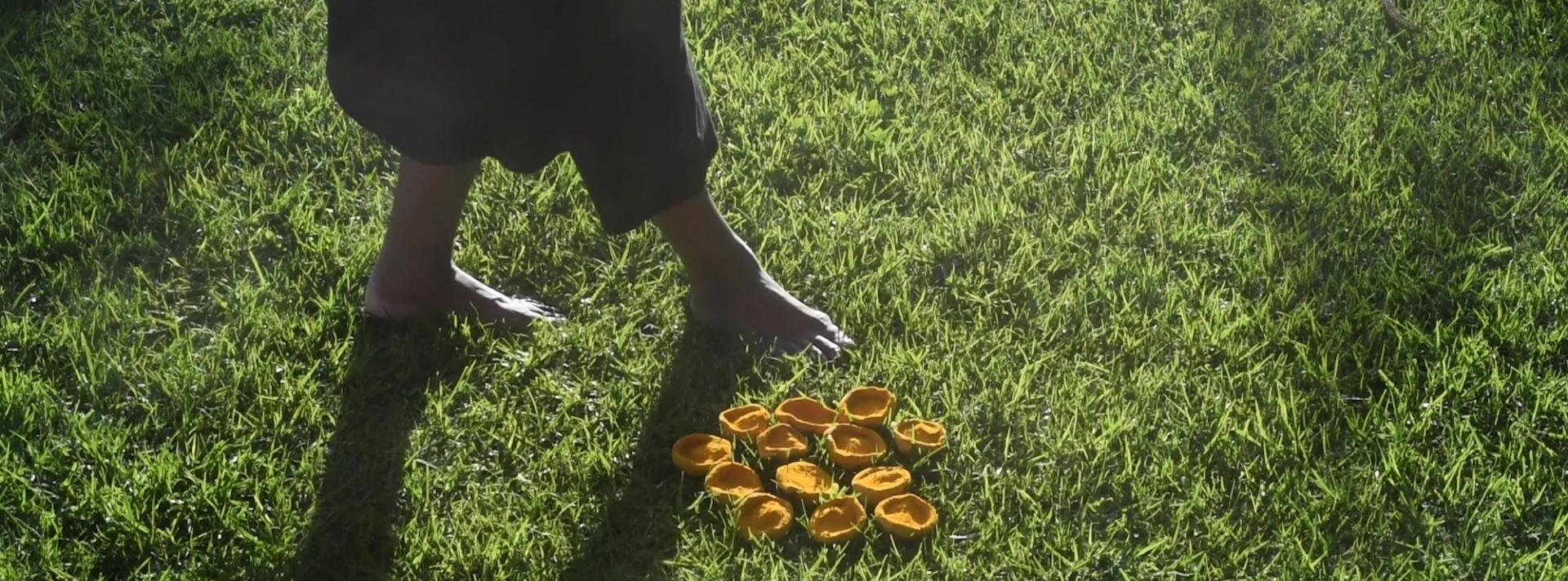
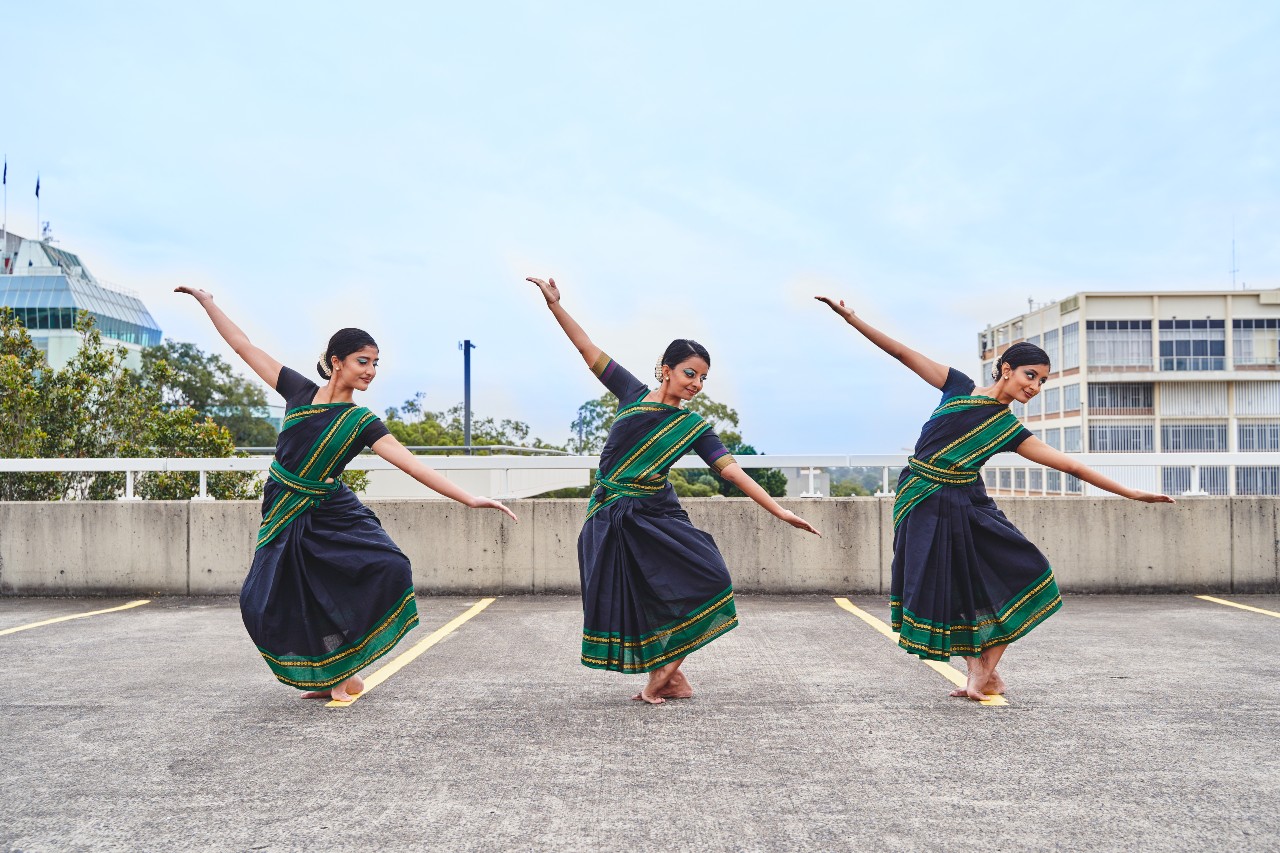
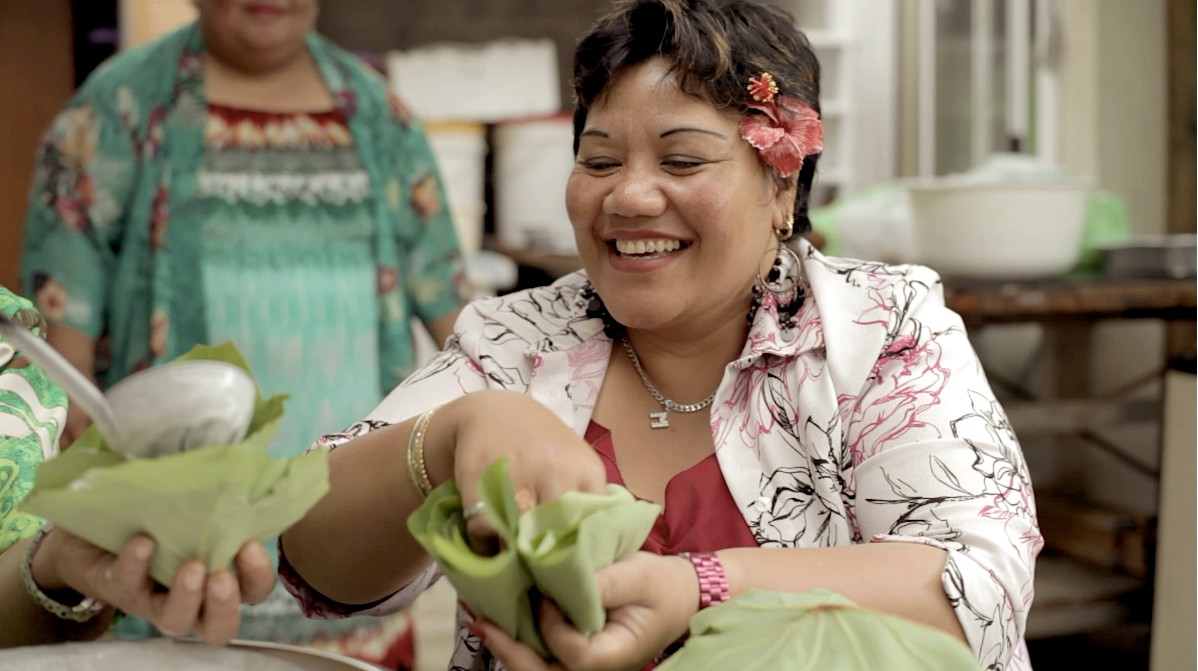
.jpg)
